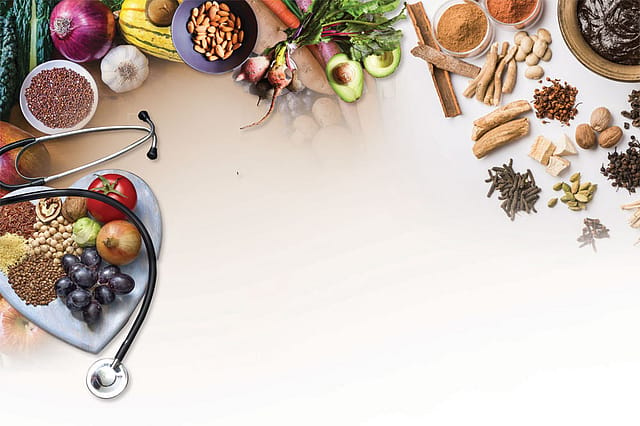Lead the Way

India has long been respected for its ancient traditions of wellness and holistic healing practices the world over. It's no surprise that medical pluralism in India has long been recognized and encouraged.
Presently India recognizes five different healthcare systems, collectively known as AYUSH (Ayurveda, Yoga, Unani, Siddha, Homeopathy), along with the conventional biomedicine or allopathy. The alternative medicines in the traditional systems are derived from herbs, minerals, and organic matter, while for the preparation of herbal drugs only medicinal plants are used.
Ayurveda is a science, and a holistic healing and preventive medical system which address various aspects of the medical processes. Yoga is an ancient Indian wellness practice involving meditation, movement and breathing techniques to promote mental and physical well-being. Homeopathy is a medical philosophy and practice based on the idea that the body has the ability to heal itself. The Siddha system of medicine depends to large extent on drugs of metal and mineral origin in contrast to Ayurveda of earlier period, which was mainly dependent on drugs of vegetable origin. The Arabs were instrumental in introducing Unani medicine in India around 1350 CE. Allopathy is a health system in which medical doctors, nurses,
pharmacists, and other healthcare professionals are licensed to practice and treat symptoms, infection, illness, and disease.
AYURVEDA DURING COVID TIMES
The principles of epidemiology have evolved in Ayurveda since the period
of Acharya Charaka (2nd CE) author of the famous Ayurveda text Charaka
Sanmitha. A chapter in the text provides details about the occurrence
of epidemics/pandemics, their causative factors, impact and preventive methods. These concepts are relevant to this day. Later on the Tridosha
theory enabled Ayurveda to interpret the disease if it is newer in character. Ayurveda physicians intervened during the times of epidemics when
public health systems were not strong in the last century. Some of them even formulated specific medicines to remedy the disease.
Vaidyaratnam P.S.Varier (1869-1944), is a leading example of this. Having established the Arya Vaidya Sala during the cholera outbreaks in early 1903, he visited the affected areas and distributed free medicines as well as leaflets on the ways to prevent the spread of the disease. Even during the small pox epidemics such activities were pivotal in containing the number
of casualties to some degree. And this was before the advent of the vaccine.
In the light of the current Covid-19 pandemic the Central AYUSH Department had prepared guidelines to help combat the pandemic for
Ayurvedic practitioners. The All India Institute of Ayurveda also started treatment wards with all safety measures.

In Kerala a massive public health intervention was organized by the State Government. A State Ayurveda Covid-19 Response Cell was formed
with experts in the field. Various schemes were designed to this end. The delivery of medicines was streamlined through Ayur-raksha clinics at
all government. Ayurvedic Dispensaries/Hospitals throughout the state.
These are all Public Private Participation (PPP) projects. Experts from Arya
Vaidya Sala also helped formulate the strategy apart from contributing medicines to the project.
Drug research is of utmost importance to establish the efficacy of Ayurvedic medicines. Initial researches at Arya Vaidya Sala have identified certain molecules that have anti-viral (SARS Corona Virus 2) properties in some of
the classical medicines like Indukantha ghritha, Mukkamukkadukadi gutika, and Vilvadi gudika, which are widely used in the treatment of
Covid-19. Arya Vaidya Sala also runs Post-Covid Clinics in all of its branches.
(A marketing initiative by Open Avenues)